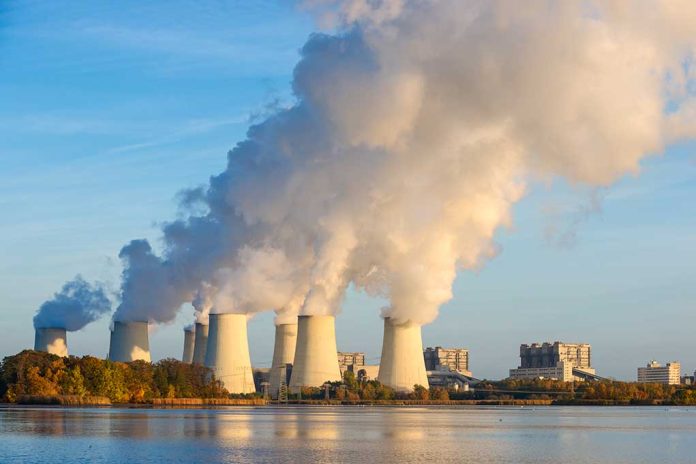
The World Bank’s historic reversal on nuclear funding gives developing nations a clean energy lifeline beyond Chinese and Russian influence, ending a decade-long ban that hampered low-carbon industrialization.
Key Takeaways
- The World Bank has lifted its decade-long ban on funding nuclear power projects, potentially transforming energy development in emerging economies
- This policy shift enables developing nations to industrialize without heavy reliance on fossil fuels while reducing dependency on Russian and Chinese nuclear technology
- The decision reflects growing global acceptance of nuclear energy, with over 20 countries pledging to triple nuclear power by 2050
- Even traditional nuclear opponents like Germany and the Union of Concerned Scientists have softened their stance, recognizing nuclear’s role in low-carbon electricity generation
- Small modular reactors could gain crucial financing, opening new markets in developing countries previously unable to access nuclear technology
A Nuclear Financing Revolution
The World Bank has officially ended its ban on funding nuclear power projects, marking a dramatic shift in “global energy policy.” This reversal of the prohibition, which had been in place since 2013, represents a significant victory for developing nations seeking to industrialize without heavy reliance on fossil fuels. The last time the World Bank financed a nuclear project was in 1959 in Italy, making this policy change particularly noteworthy after more than six decades of nuclear financing absence. The decision signals a recognition that nuclear power must play a crucial role in meeting growing energy demands while addressing climate concerns.
Growing Global Support for Nuclear Energy
Nuclear power is experiencing a remarkable resurgence in global support, with over 20 countries recently pledging to triple nuclear power capacity by 2050. The United States, a major World Bank shareholder, has been advocating for lifting the ban to enhance energy supply in emerging markets. Even Germany, which shuttered its own nuclear plants following the 2011 Fukushima disaster, has shifted position under its new government to support nuclear power development, particularly next-generation reactors. This global realignment on nuclear energy reflects a growing pragmatism about meeting carbon reduction goals while ensuring reliable baseload power generation.
Breaking Dependency on Russia and China
“One of the most significant implications of the World Bank’s policy reversal is reducing developing nations,” declared by the world bank. reliance on Russia and China for nuclear technology and financing. These countries have dominated the international nuclear market through their state-owned energy companies, giving them substantial geopolitical influence. Countries like Ghana have been advocating for the World Bank’s policy change specifically to build their own reactors independently of these powers. World Bank financing will provide developing nations with more options and greater sovereignty in their energy decisions, potentially reshaping global energy politics.
Small Modular Reactors: The Future of Nuclear
The World Bank’s new policy could particularly accelerate the development and deployment of “small modular reactors (SMRs),” which are better suited to developing nations’ grids and financial capabilities. Unlike traditional large-scale nuclear plants that require massive upfront investments, SMRs can be built incrementally and scaled as needed. World Bank President Ajay Banga has committed to climate goals while expanding energy access, particularly in Africa, where SMRs could provide reliable baseload power without the carbon emissions of coal or natural gas. This financing shift could be transformative for regions struggling with energy poverty.
Balancing Climate Goals and Energy Access
The World Bank’s nuclear policy shift represents a pragmatic approach to balancing climate goals with energy development needs. While the bank stopped funding oil and gas drilling projects in 2017, it has recognized that developing nations require reliable baseload power to industrialize and improve living standards. The Union of Concerned Scientists, long skeptical of nuclear power, has softened its stance, acknowledging nuclear energy’s value in providing low-carbon electricity. This policy change may prove especially significant for Southeast Asian nations currently dependent on coal, offering them a viable alternative that satisfies both development needs and climate concerns.





